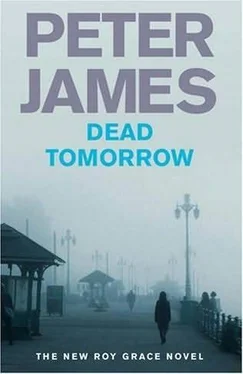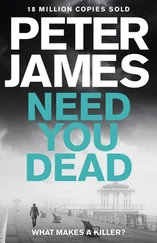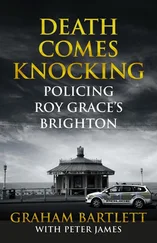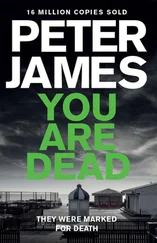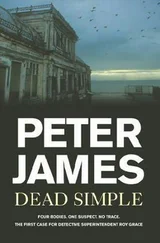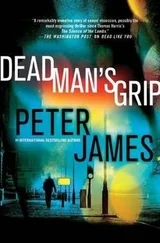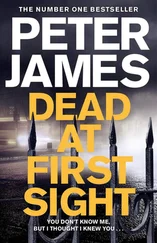It sounded as if Kevin Spinella, who answered instantly, was also eating his lunch.
‘I don’t have much for you,’ Grace told him. ‘I’m not holding a press conference. Instead I’m just going to send out a press release, so I’ll give you the exclusive I promised. OK?’
‘Very good of you, Detective Superintendent. I appreciate it.’
‘Well, I think most of it you already know. The dredger, Arco Dee , pulled up the body of an unidentified male, believed to be in his mid-teens, yesterday afternoon, ten miles south of Shoreham Harbour, in its designated dredge area. A Home Office post-mortem was carried out this morning and the cause of death is as yet undetermined.’
‘Would that be on account of all the vital organs being missing, Detective Superintendent?’
How the hell do you know that? This was a real, ongoing problem, Grace realized. Where did Spinella get his information from? Some day soon he was going to find the leak. Was it someone here, within HQ CID, or at the Coroner’s Office, or in one of the uniform divisions or even at the mortuary? He thought carefully before answering, listening to the somewhat unpleasant sound of the reporter chewing.
‘I can confirm that the body has been subject to recent surgery.’
‘An organ donor, right?’
‘I’d rather you didn’t print that for the moment.’
There was a long silence. ‘But I’m correct?’
‘You would be correct to print that the body has been subject to recent surgery.’
Another silence. Then a reluctant, ‘OK.’ More chewing, followed by, ‘What can you tell me about the body?’
‘We estimate it has only been in the water for a few days at most.’
‘Nationality?’
‘Unknown. Our priority is to track down his identity. It would be helpful to me if you printed something along the lines that Sussex Police would like to hear from anyone with a missing teenage boy who has been subject to recent surgery.’
‘Foul play is suspected presumably?’
‘It is possible that the victim died lawfully and was buried at sea – and then drifted.’
‘But you are not ruling out foul play?’
Again Grace hesitated before replying. Every conversation he had with this reporter was like a game of chess. If he was able to get Spinella to word the story the way he wanted, it could be very helpful in generating public response. But if it was printed sensationally, all it would do was frighten the citizens of Brighton and Hove.
‘Look,’ he said. ‘If I tell you, you’ll promise not mention anything about organs at this stage?’
More chewing down the earpiece. Followed by the sound of a paper or cellophane wrapping being torn off. Then, ‘OK, deal.’
‘Sussex Police are treating this as a suspicious death.’
‘Top man! Thank you.’
‘Here’s something else for you, but not to be printed. I’m having the area scanned and police divers are going down tomorrow.’
‘You’ll let me know what they find?’
Grace assured him he would and ended the call. Then he finished his lunch and, almost instantly, his stomach feeling uncomfortably bloated, began to regret the doughnut.
Checking his electronic diary, he saw a reminder that he needed to send a request to Cellmark Forensic Services, the private laboratory at Abingdon which now handled Sussex CID’s DNA testing, for the six-monthly check on the DNA profiles of his cold cases.
While the perpetrators had so far eluded justice, there was always the chance that a relative would have their DNA taken by the police after committing an offence – even for something as comparatively minor as a drunk-driving charge. Parents, children and siblings could provide enough of a match, so although this was a considerable expense out of the force’s annual forensic budget, it did occasionally produce results to justify the outlay. He emailed his MSA, instructing her to put in a request.
As he had reflected many times, being a detective was a bit like fishing. Endless casting, endless patience. He glanced at the seven-pound six-ounce brown trout, stuffed and mounted in a glass case fixed to a wall in his office, and alongside it, a huge stuffed carp which Cleo had recently given him, with the terrible pun, Carpe diem , embossed on the brass plaque at its base. He referred to the trout, occasionally, when briefing young, fresh-faced detectives, making an increasingly tired joke about patience and big fish.
Then he focused his mind back on Unknown Male and made a series of phone calls to assemble his initial inquiry team. All the while, he kept staring at the damn fish, his eyes moving back and forth between them. Water. Fish lived in water. In the sea and in rivers. Then he realized why he kept staring at them.
A few years back, the headless and limbless torso of an unidentified African boy had been found in the Thames. Grace was sure he remembered, from all the publicity at the time, that this boy had had his internal organs removed too. It had turned out to be an occult ritual killing.
Feeling a sudden surge of adrenalin, Grace tapped out a search command for details of the file he knew he had saved somewhere on his computer.
Sometimes, Roy Grace wondered whether computers had souls. Or at least a sense of humour. He had not yet elevated Unknown Male to Major Incident status, but because the investigation was now a formal operation the protocols required that it be allocated a name. The Sussex Police Computer had a program for this purpose, and the name it allocated the Detective Superintendent was bizarrely apt. Operation Neptune.
Shoulder to shoulder around the small, round table in his office were five detectives whom he had come to regard as his most trusted team.
Detective Constable Nick Nicholl was in his late twenties, short-haired and tall as a beanpole, a zealous detective and a handy centre forward, whom Grace had encouraged to take up rugby, thinking he would be perfect to play in the police team, of which he was now president. But the poor man was permanently bleary-eyed and zapped of energy, thanks to the joys of recent fatherhood.
Rookie Detective Constable Emma-Jane Boutwood, a slim girl with an alert face and long fair hair scooped up in a bun, had nearly been killed in a recent operation, when she had been crushed against a wall by a stolen van. She was still officially convalescing and entitled to more leave, but she had begged to come back, determined to get on with her career, and had already proved her worth to him in an earlier operation.
Shabbily dressed, with a bad comb-over and reeking of tobacco, Detective Sergeant Norman Potting was an old-school policeman, politically incorrect, blunt and with no interest in promotion – he had never wanted the responsibility, but nor had he wanted to retire when he reached fifty-five, the normal police pension age for a sergeant, and would probably extend his service. He liked to do what he was best at doing, which he called plodding and drilling . Plodding, methodical police work, drilling down deep beneath the surface of any crime, drilling for as long and as deep as he needed until he hit a seam that would lead him somewhere. A veteran of three failed marriages, he was currently on his fourth, with a young Thai woman who, he boasted proudly at every opportunity, he had found via the Internet.
Detective Sergeant Bella Moy, an attractive woman in her mid-thirties, with a tangle of hennaed hair, was something of a lost soul. Unmarried – although, like many, married to the police force – she was stuck living with, and looking after, her elderly mother.
The fifth was Glenn Branson.
Also attending were the Crime Scene Manager, David Browne, and the HOLMES analyst, Juliet Jones.
Читать дальше
